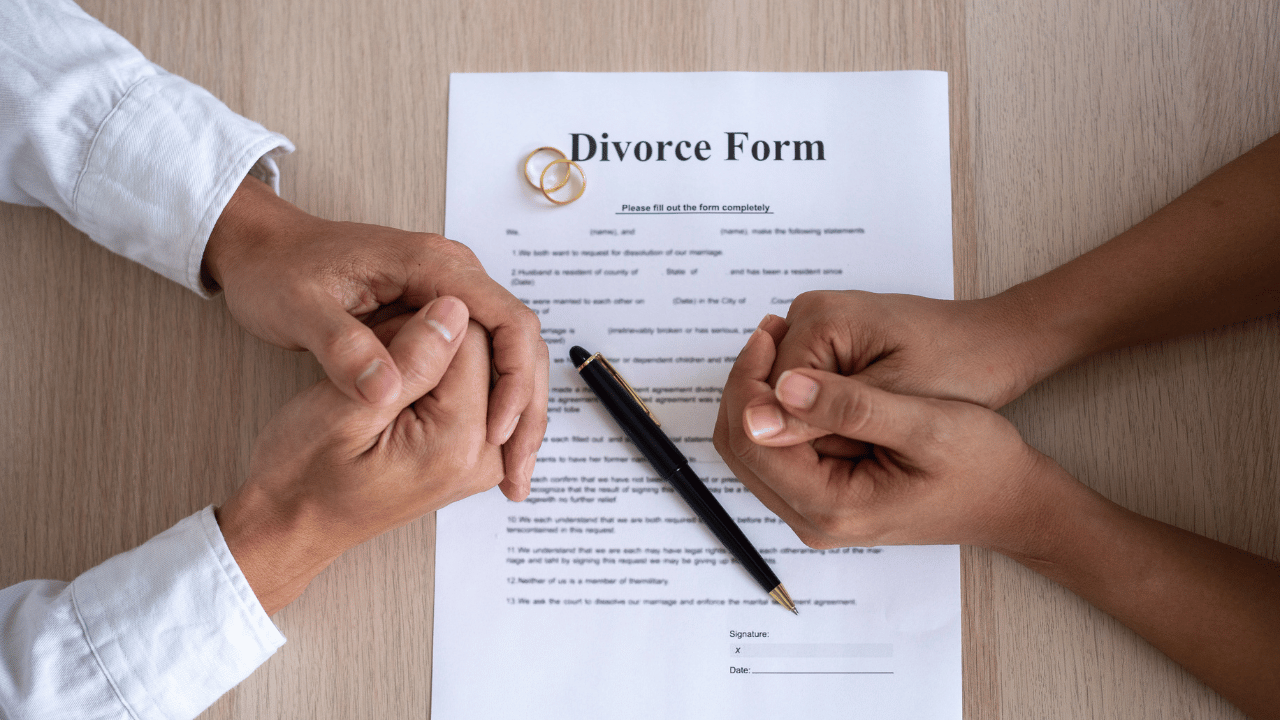5 Reasons To Have a Contested Divorce In Michigan (Even If You Don’t Want To Fight)
This article about the contested divorce process in Michigan by Steslicki & Ghannam PLC is not intended to be, and should not be construed as legal advice. It is for informational purposes only. For advice specific to your potential divorce proceedings, consult with an experienced divorce attorney by contacting our office today.
What Does Contested Divorce Mean?
A contested divorce means that the parties involved do not already have an agreement as to how to divide their assets and debts and a full and complete agreement on custody, parenting time and child support prior to filing their petition. It could mean that the spouses need only a little help, such as advice from divorce attorneys who are experienced in resolving these areas, a session of mediation to help resolve their contested divorce, or it could mean that they need more support and services, such as custody investigations, business evaluations, involvement from the Court, or even a trial if they are ultimately unable to come up with a resolution with the assistance of a divorce attorney. On the other hand, an uncontested divorce means that the spouses have already come up with a resolution together and only need an experienced divorce attorney to help them with details and entering the agreement.
What a contested divorce does NOT mean is that one spouse contests the Divorce. In Michigan, we are a “no fault” Divorce state, which means that there does not need to be a reason for the divorce other than the party believes that there has been a “breakdown in the marital relationship to the extent that the objects of matrimony have been destroyed and there remains no reasonable likelihood they can be repaired.” If one spouse wants a divorce in Michigan, a Judge will divorce them. The other spouse may make it more difficult, but they cannot stop it.
Why Couples Avoid Contested Divorces
Couples avoid contested divorces for many reasons, including the expenses, the time involved, and the interference with the Court in their lives. The legal fees for a contested divorce can range greatly depending on how contested it is, and there are numerous steps which need to be taken to gather information regarding children, assets, debts, additional hearings in court.
Another reason that couples avoid a contested divorce is that in the end, if they are not able to come to an agreement there could be a trial, and a Judge will make all of these decisions for them- it takes all of the power and decision making out of their hands and places it with a Judge, who will never know their situation and family as well as the spouses do. In a trial situation with a contested divorce, the Court will make the final decision on any issues the parties have not agreed to.
Uncontested Divorces Are Not The Answer in Certain Situations
This does NOT mean you should try to work everything out in your divorce without talking to a lawyer first. Often, much more often that we would like to see, one spouse is being bullied or convinced they should come to an agreement, and it is simply so one spouse can trick or confuse the other- often the spouse with less “power” in the relationship dynamic. You will want to talk to a divorce attorney before having any settlement conversations with your spouse. You want to be armed with information before discussing things. Oftentimes a party will come in saying they have agreed to something, and after a consultation, discovered they were entitled to much more! This could cause greater stress, because the other spouse perceives that the agreement they made was backed out of. This happens more often than one would think. Issues such as alimony, filing a response with the court, and custody are not things that one might know going into the process. One thing to know is that if your spouse files, and you do not respond, you could be defaulted, and they can proceed without you.
Often, a spouse is lulled into a false sense of security that they are “working together” or only need one attorney (this could not be farther from the truth) and then end up tricked in the end! You certainly do not want to sign any agreements with the other spouse before having an attorney review it. The danger of having discussions beforehand is you could be missing key items, or give on an issue that you did not need to or should not have, and it then have to back out of the discussions you have had. You don’t want to find that out after. Talk to an experienced family law attorney beforehand so you know what are all of the issues that need to be discussed, and your options before having the conversations. Your legal team does not need to make a divorce more difficult, they can be advisors who guide you through the process and keep you informed, so you can make the best decisions along the way. Don’t wait until the end to bring an experienced attorney on your side.
What to Do if Your Spouse Contests the Divorce
If your spouse contests the divorce, as stated above, you can still get a divorce. You should consult with an attorney. Come armed with a list of all of your assets, debts, and an idea of what you would like to see as to custody and parenting time, if applicable. A contested divorce does not need to mean an ugly divorce. It could simply mean there is just no agreement yet. An an uncontested divorce does not always mean a fair divorce. The contested divorce procedure does not need to mean multiple hearings and tens of thousands of dollars if both parties have knowledgeable and experienced attorneys who know the law, the likely outcomes, and each parties risks and benefits of moving forward. With the guidance of good attorneys, the contested divorce process can be as simple as sending settlement proposals back and forth. However, sometimes settlement is not possible, and in that case you want an experienced legal team who is organized and prepared to take your case to a trial, while simultaneously doing everything possible to avoid that.
What’s the difference between a contested and an uncontested divorce?
The process for a contested divorce and uncontested are not that different, the difference is the number of stops (court hearings, investigation of marital assets, mediations) along the way. In each case, you begin with a Complaint for Divorce, and end with a Judgment of Divorce. In most cases it is still appropriate to exchange verified lists of assets and debts involved. In an uncontested divorce, your attorneys will draft a Judgment with the terms that are agreed upon by all parties. Each parties attorney will review the document to make sure it protects their client and their interest, and that their client is really signing a Divorce Agreement that they understand the rights and obligations therein, before making a final decision to sign the Judgment. The difference is what happens in between, and how contested the divorce becomes depends in part on the parties, and in part on the attorneys willingness to seek creative solutions tailored to your particular family.
Discuss Your Contested and Uncontested Options With a Divorce Lawyer
Whether or not you know your spouse agrees, you should have a discussion with a Divorce Lawyer. They have specialized knowledge of how to draft divorce papers (whether it be the Divorce petition, having to respond to papers filed in Court) issues regarding your children (the best interests factors) that you may not have thought of yet, making sure you Judgment is prepared with the appropriate divorce terms so that a Judge will actually sign your Judgment, how to appear and argue in Court or at trial, and to summarize all the issues you may be facing.
When You Actually Should Have An Uncontested Divorce
One time where an uncontested divorce makes sense is if there is a prenuptial agreement. In that case, the parties have already agreed to avoid the divorce court processes in a contested setting to resolve these issues ahead of time. (It is still a good idea to have legal representation in that case, especially if there are children involved. Spouses cannot agree ahead of time on custody, parenting time or child support issues in a prenuptial agreement).
Alternatives to a Contested Divorce
There are alternatives to a contested Divorce. Michigan has a process called a “collaberative divorce” where parties agree to work with specially trained attorneys (both partners at our firm have completed the required training!) and a team of professionals dedicated to low conflict resolution of the outstanding issues. It is a set of different legal procedures, where the parties agree to resolve everything before filing, and then file a joint petition and Judgment once an agreement is reached. Either party can back out, and if a spouse disagrees to continue the process, then it will convert to a more traditional contested divorce process. However, it is a worthwhile option to explore if both spouses agree to keep the process as amicable as possible.
How much does a divorce cost?
The cost of a divorce can range greatly. It largely depends on how much disagreement there is between the spouses, which is something that is difficult to control. The lawyers can have a large influence on those costs, some attorneys are notorious for increasing fees, and some are well known for aiming for reasonableness when possible in order to seek what is in the best interests of the particular family before them. When a divorce is highly contested, if there are multiple hearings, motions, settlement proposals, etc., the attorneys must respond, and that can increase fees. Having to dig, having to search for assets hidden during a marriage, spouses who can’t agree on anything, can all increase the costs. Issue such as mental health or substance abuse can increase the costs because of the amount of investigation required.
However the good news is that highly expensive divorces are not the norm. While hurt feelings may be involved, often parties, with both spouses having experienced attorneys who understand that family court involves actual families, that have to heal and move on from this process do not seek to merely increase fees, and strife. Make sure to have an attorney you are comfortable can both seek all reasonable solutions to settle, but also do the work to be prepared to have a trial.
5 Reasons To Choose a Contested Divorce
There are some times a contested divorce is best, or at minimum unavoidable. When your marriage has reached its end, sometimes one spouse is not ready to let go, and does everything in their power to make it difficult to end the marriage. Divorce lawyers who are used to this can help guide you through the process to minimize the games.
1- Some issues are very difficult to resolve amicably. Often they center around Alimony/Financial Support, businesses, custody, hiding income or assets. You should not come to an agreement that is unfair simply to avoid a fight.
2-If any abuse issues are present (whether it be financial abuse, physical abuse, substance abuse) it may be difficult to come to agreements between the spouses on what is best.2-
3- If you have no knowledge or limited knowledge of the financial assets. This is common in cases where someone stays at home, doesn’t work, and the other partner handles all of the finances. Lawyers have the ability to do some digging and make certain requests to ensure all assets are disclosed.
4- When someone is lying or hiding assets. This happens often. You may not even know that something exists! Or a party could have engaged in prefiling tactics to try to make it artificially appear that the marital estate is smaller than it is.
5- When there is any imbalance of power in the relationship, whether it be physical, financial, emotional- anything. You do not want to be bullied or tricked into settling when it is not in your best interests, or your children’s best interest!
Whether your divorce is contested or uncontested can make a huge difference, for better or worse in both cases. Be sure to have an experienced attorney on your side, even if the spouses agree, to look over everything, make sure the proper procedures are followed, and importantly, to protect you and make sure the Divorce Judgment really says what you intend for it to.












